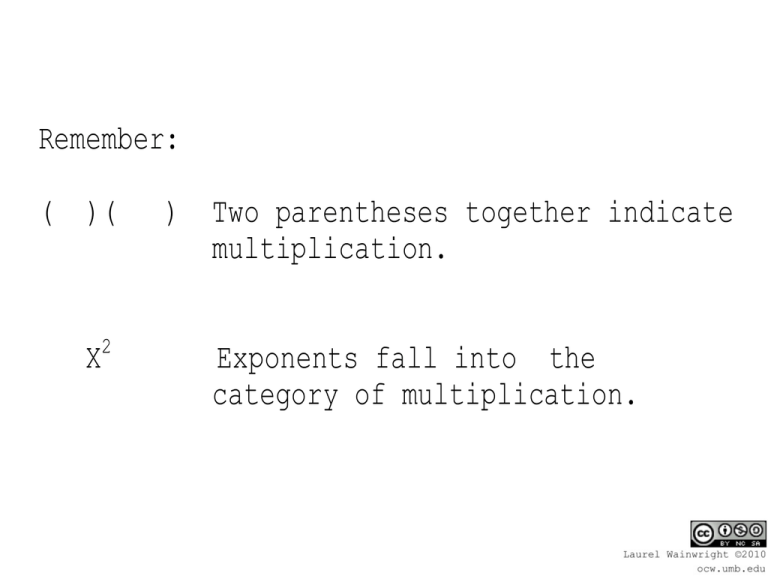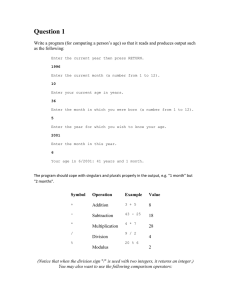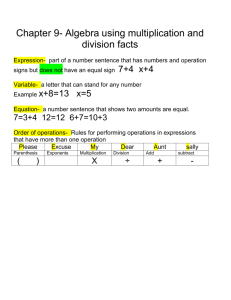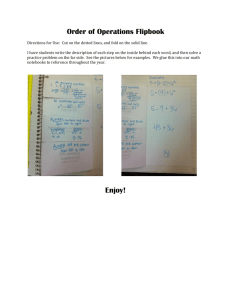Symbols
advertisement

Remember: ( )( 2 X 4+3 (2)(3) ) Two parentheses together indicate multiplication. Exponents fall into the category of multiplication. Fractions represent division. Compute the top and bottom completely, then divide. X2 4+3 (2)(3) Exponents fall into the category of multiplication. Fractions represent division. Compute the top and bottom completely, then divide. e.g. 4+3 = 7 (2)(3)= 6 7 6 = 1.67 The Summation Sign : X a symbol for summing all values that are to the right of the symbol. represents adding every value that X can be. of the symbol. X represents adding every value that X can be. Data set: 2, 4, 6, 8 X = 2 + 4 + 6 + 8 X = 20 Using that same data set: 2, 4, 6, 8 X 2 X 2 = = X = 2 (2x2) + (4x4) + (6x6) + (8x8) 4 + 16 + 36 + 64 120 What is the difference between XY and XY Imagine you were using these two data sets: X: 2, 4, 6, 8 Y: 1, 3, 5, 7 XY = (2+4+6+8)(1+3+5+7) = (20)(16) = 320 data sets: XY = (2+4+6+8)(1+3+5+7) X: 2, 4, 6, 8 = (20)(16) Y: = XY 1, 3, 5, 7 320 XY = (2+4+6+8)(1+3+5+7) = (2x1)+(4x3)+(6x5)+(8x7) = (20)(16) = 2 + 12= + 320 30 + 56 = XY 100 = = (2x1)+(4x3)+(6x5)+ 2 + 12 + 30 + 56



